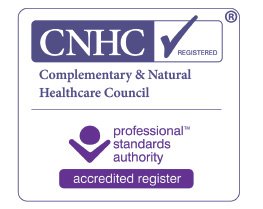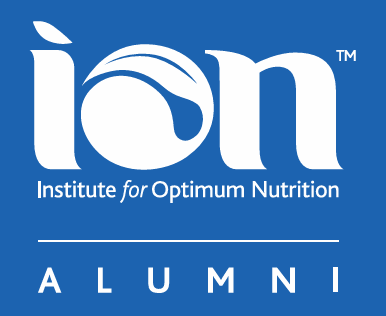Frequently Asked Questions
My nutritional therapy practice is based in Crystal Palace, South East London. Clients from the surrounding areas such as Penge, Bromley and Sydenham are welcome to come for an initial face-to-face consultation at my home practice, and then continue with Zoom follow-ups for subsequent sessions.
We certainly can! I offer online consultations over Zoom and have clients from all over the UK and Europe. As a native French speaker, I can also provide consultations in French. Online consultations mean you can fit in your sessions around your personal and work life, and my clients love how convenient it is to dial in from home.
I completed my 4 year training in Nutritional Therapy at the renowned Institute for Optimum Nutrition (ION), where I trained in the principles of Functional Medicine, which is a personalised and integrative approach to healthcare. I am a full member of the British Association for Nutrition and Lifestyle Medicine (BANT), a professional body for Registered Nutrition Practitioners. I am also registered with the Complementary and Natural Healthcare Council (CNHC), the UK regulator for complementary healthcare practitioners. I am also registered with the ICO (Information Commissioner's Office) for data protection, and fully insured with Balens Insurance Co Ltd. Our knowledge of nutrition is constantly evolving, so I attend regular Continuing Professional Development (CPD) events to ensure I am up-to-date with new developments within the field of nutrition and to improve my skills. I complete a minimum of 70 hours of CPD training annually.
Yes, of course; I welcome clients of all genders. It's true that the majority of my clients are women due to my areas of specialism. However, it's quite common for my clients to send their partners to me! Sometimes it may actually be advisable, particularly for clients who are trying to conceive. In this instance, I may do a one-off session with the partner (it takes two to tango!).
Yes, testing is a big part of my practice, like we like to say, "test don't guess". Depending on my client's budget, I may write a letter to the GP with my recommendations. I am also able to recommend targeted private tests if I think my clients may benefit from it. Not all tests are easily available via the GP surgery.
You will receive an invoice before your initial appointment, which you may pay by bank transfer. Appointments require payment on the day of the service. Taking into account your budget and individual needs, I sometimes recommend private testing and supplements, which are not included in the cost of your consultation.
BANT registered nutritional therapy practitioners have completed a course approved by the British Association for Nutrition and Lifestyle Medicine (BANT) and are registered with the Complementary and Natural Healthcare Council (CNHC). BANT Full Membership requires qualifications from a level 6 or higher degree level course accredited by the Nutritional Therapy Education Commission (NTEC). BANT registered nutritional therapy practitioners tend to work in private practice. On the other hand, dietitians in the UK are regulated by the Health and Care Professions Council (HCPC) and must complete a degree program that is approved by the HCPC. Some dietitians work in private practice, while some nutritional therapists may work in clinical settings. However, dietitians often work in clinical settings, such as hospitals, community clinics, or care homes, where they provide nutritional advice and support to people with a wide range of medical conditions.
First I send you my health, diet and lifestyle questionnaire. During our initial consultation, we discuss your medical history, symptoms, diet and lifestyle. We look at identifying the underlying causes of any imbalances. Together, we'll work on an achievable plan to help you reach your goals. I provide you with a written personalised plan, including handouts and recipes, and a letter to your GP or consultant if required.
Evidence-based nutritional therapy is an approach to nutrition and lifestyle that is grounded in scientific research, as well as clinical experience. After graduation, practitioners are required to complete annual CPD training in order to stay up-to-date with the latest research. This can help ensure that you're getting accurate and reliable information that is tailored to your individual needs and goals.
Most BANT registered nutritional therapy practitioners take a "non-diet" approach that focuses on overall health and wellbeing, rather than weight loss as a primary goal, as sometimes it can do more harm than good. It is also worth noting that past dieting can slow down metabolism and make weight loss more challenging for some. Some women may also experience hormonal or health challenges which will make rapid weight loss more challenging. Having said all this, a holistic approach to nutrition and health that focuses on balance, flexibility and self-care tends to be much more effective and sustainable long term and may help clients eventually reach their goals.






